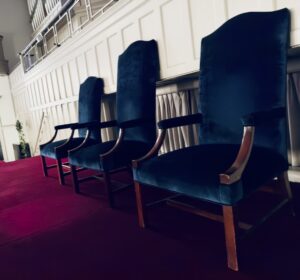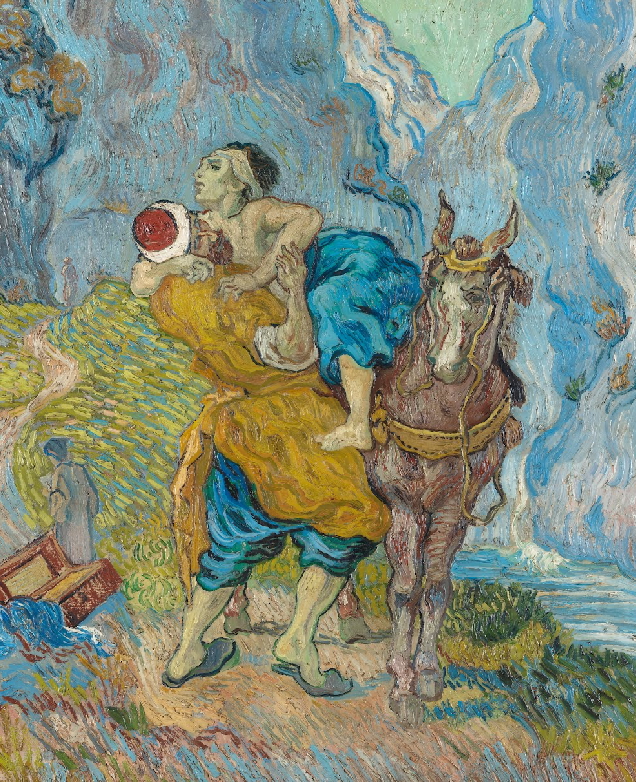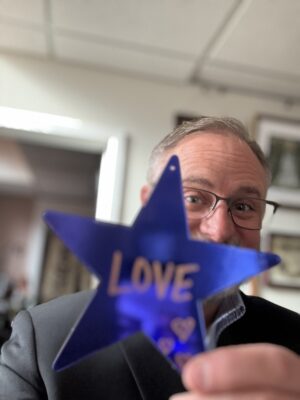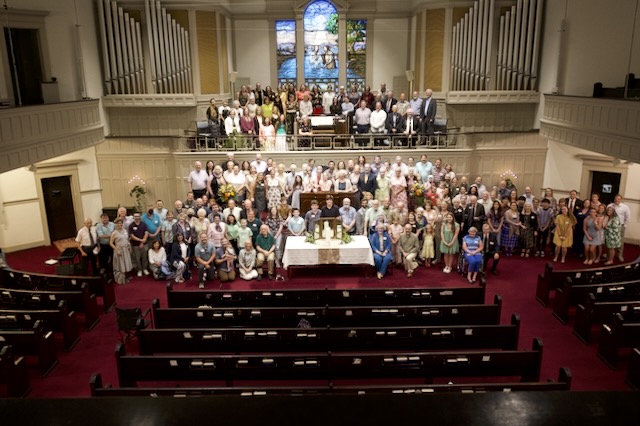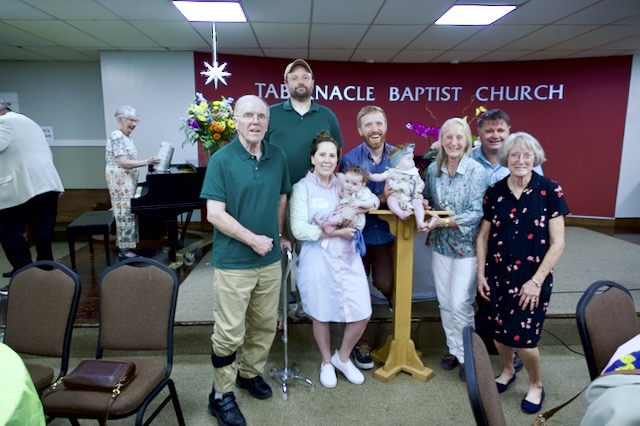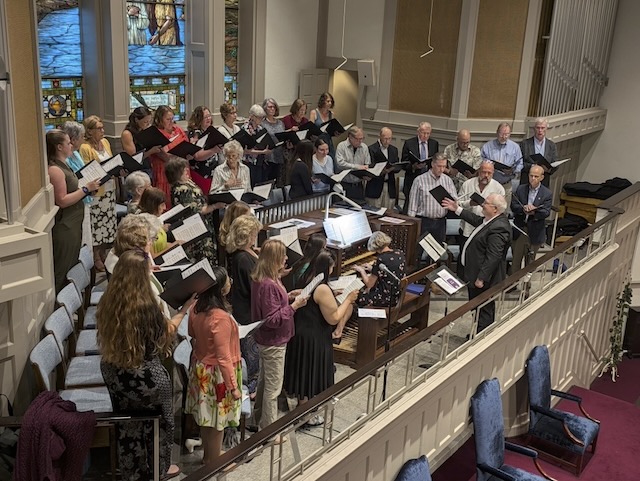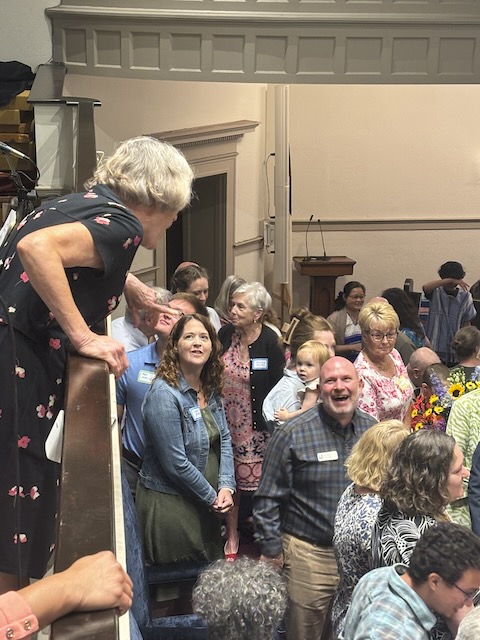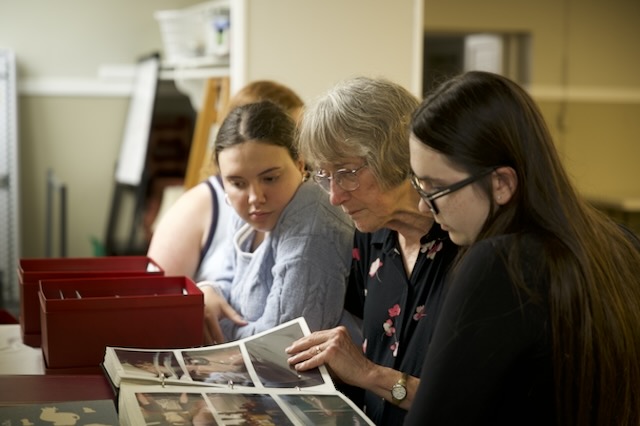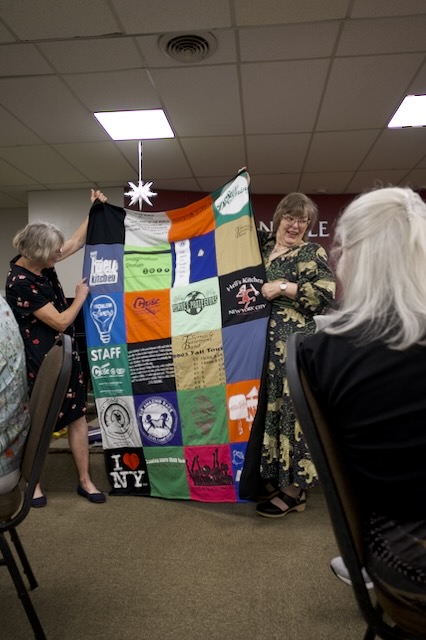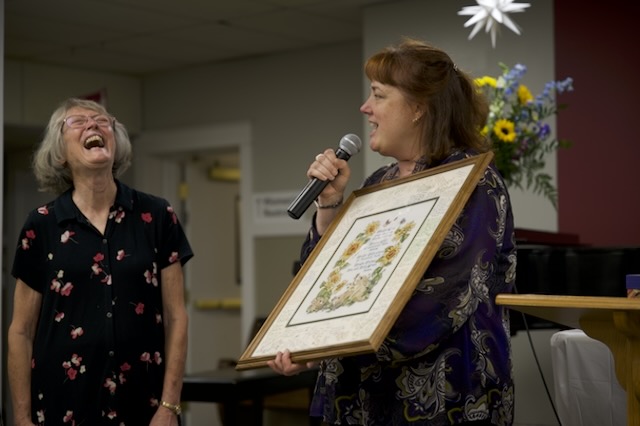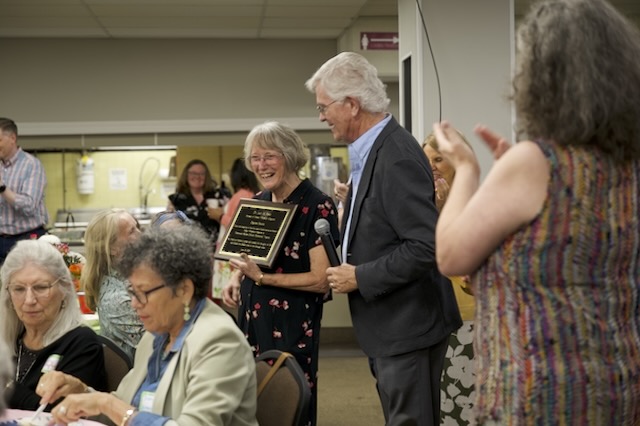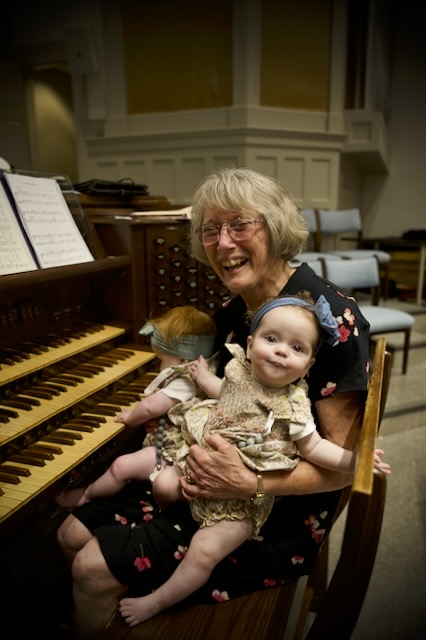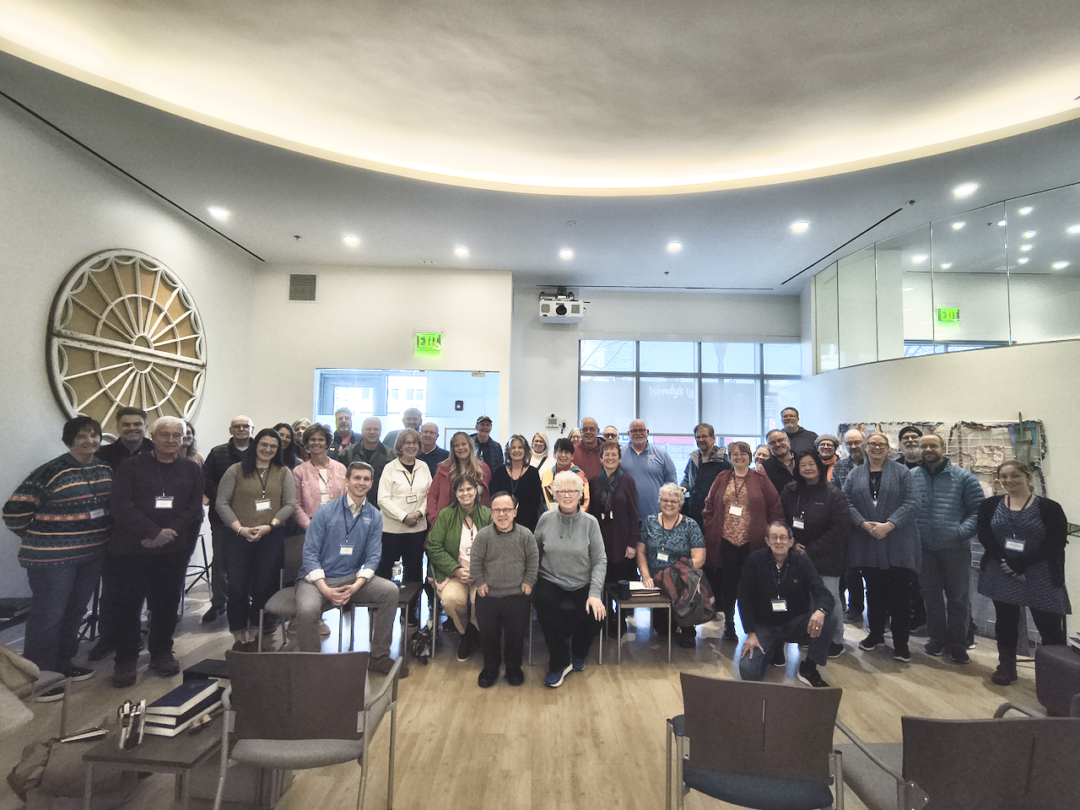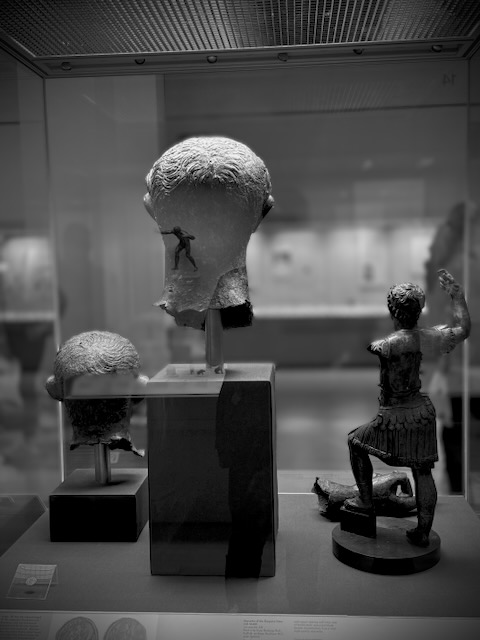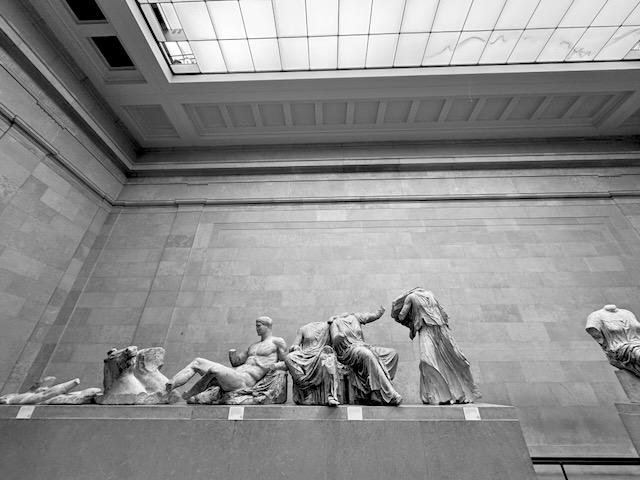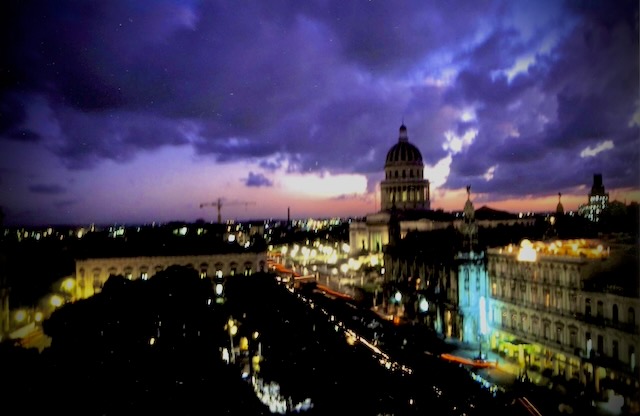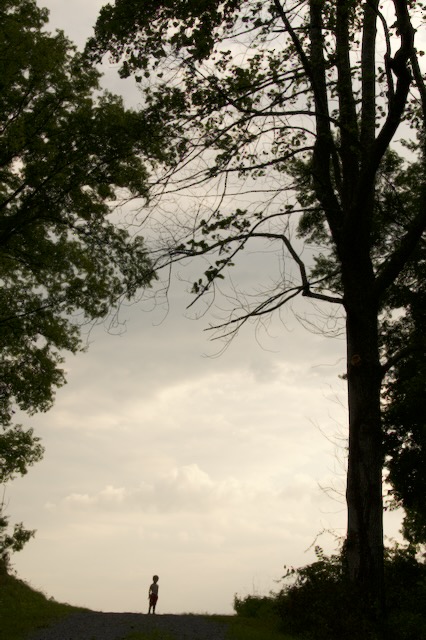On Sunday mornings, I have the privilege of sitting up front in the blue fabric chair just behind the pulpit before worship really gets going.
For over 20 years, I’ve settled into that chair nearly every week, watching the congregation arrive for worship. Some of you walk in quietly, take a bulletin, and slip into a pew for quiet reflection, while others of you move through the room greeting one another. And then there are those of you in the Virtual Acre doing something similar in your own way—settling in with coffee, saying good morning in the chat, making space for worship wherever you are.
One of the things I’ve come to love about sitting in that seat is that it gives me such a clear view of what happens next. I get to see the slow, quiet convergence as you arrive from all over, carrying the week behind you, your burdens and joys in tow, and gradually our voices begin to join together.
There’s something beautiful about those first notes of the gathering song. It’s one of those sacred moments when our gathered bodies become The Gathered Body—when the many individual parts begin coming together as one.
As worship continues, that sense of shared space only deepens. When some of you stand to share your testimonies—each one unique, rooted in your own lived experience—there’s this mystery where your stories begin to resonate with all of us. When others of you lead us in song, guide us in prayer, or serve in so many other ways, your offerings invite us deeper into this shared experience of worship.
We start to hear our own questions, struggles, and hopes echoed back.
It’s in that sharing, both spoken and silent, that we remember we’re not just a collection of individuals, but brought together by the Spirit of God, learning again and again to share our lives, lift our voices, and find grace in the faces around us.
It’s one of those times when our scattered lives find a shared voice, drawn together by the Spirit, ready to sing grace into the world.
Rev. Sterling Severns, Pastor

